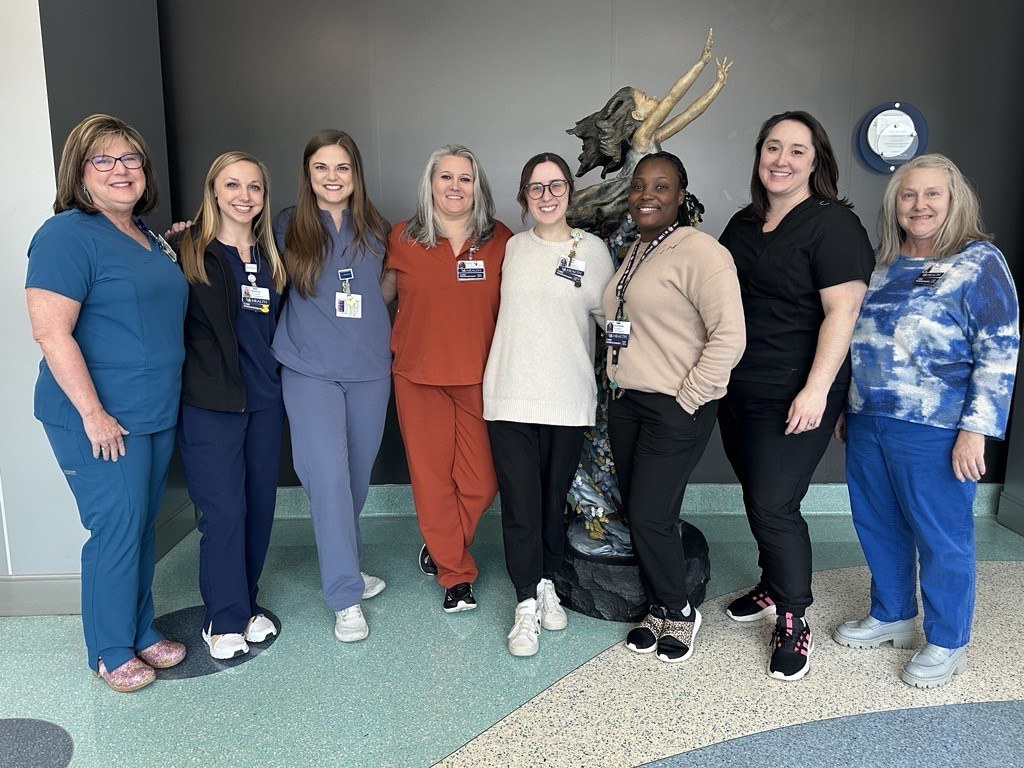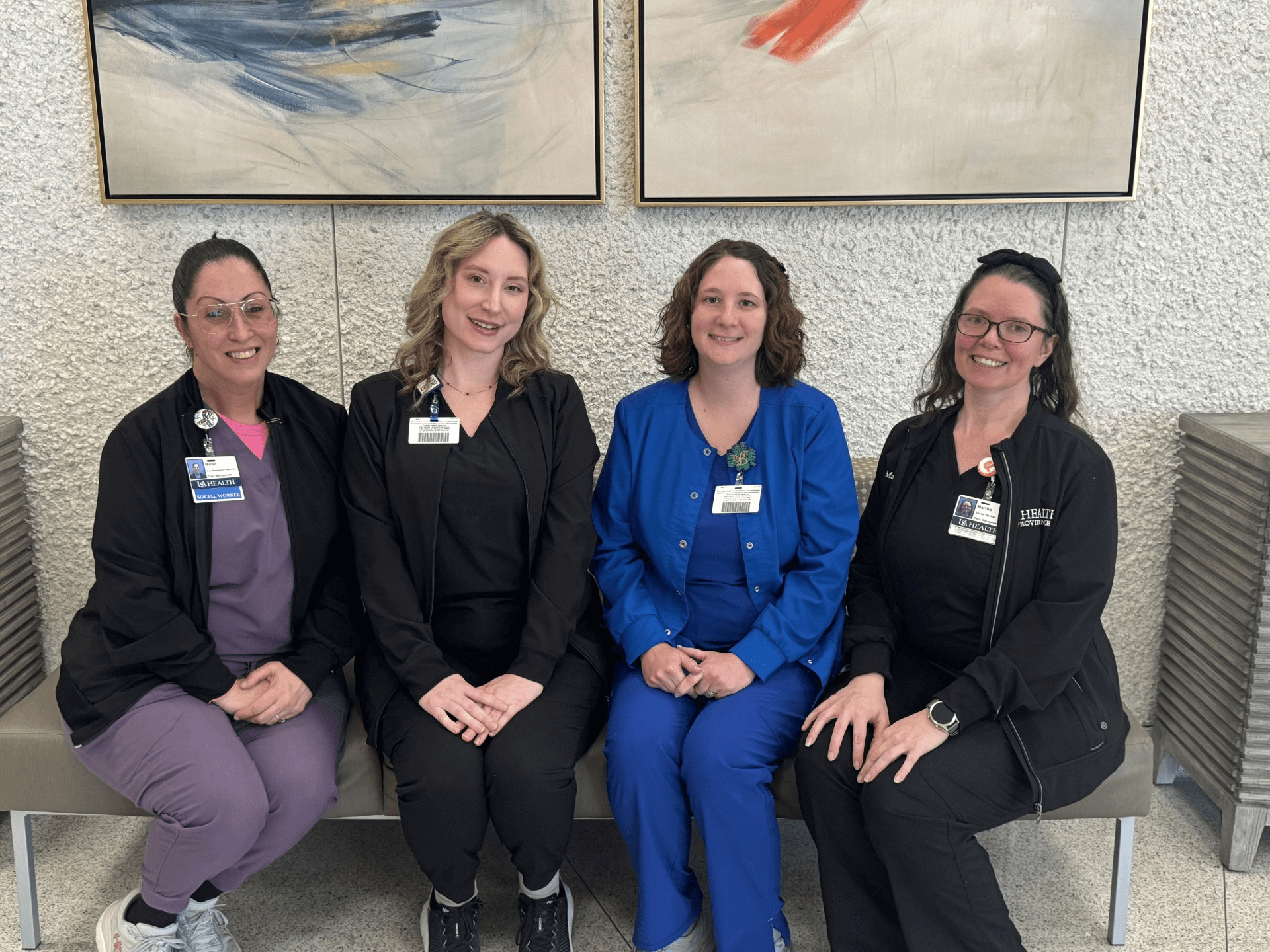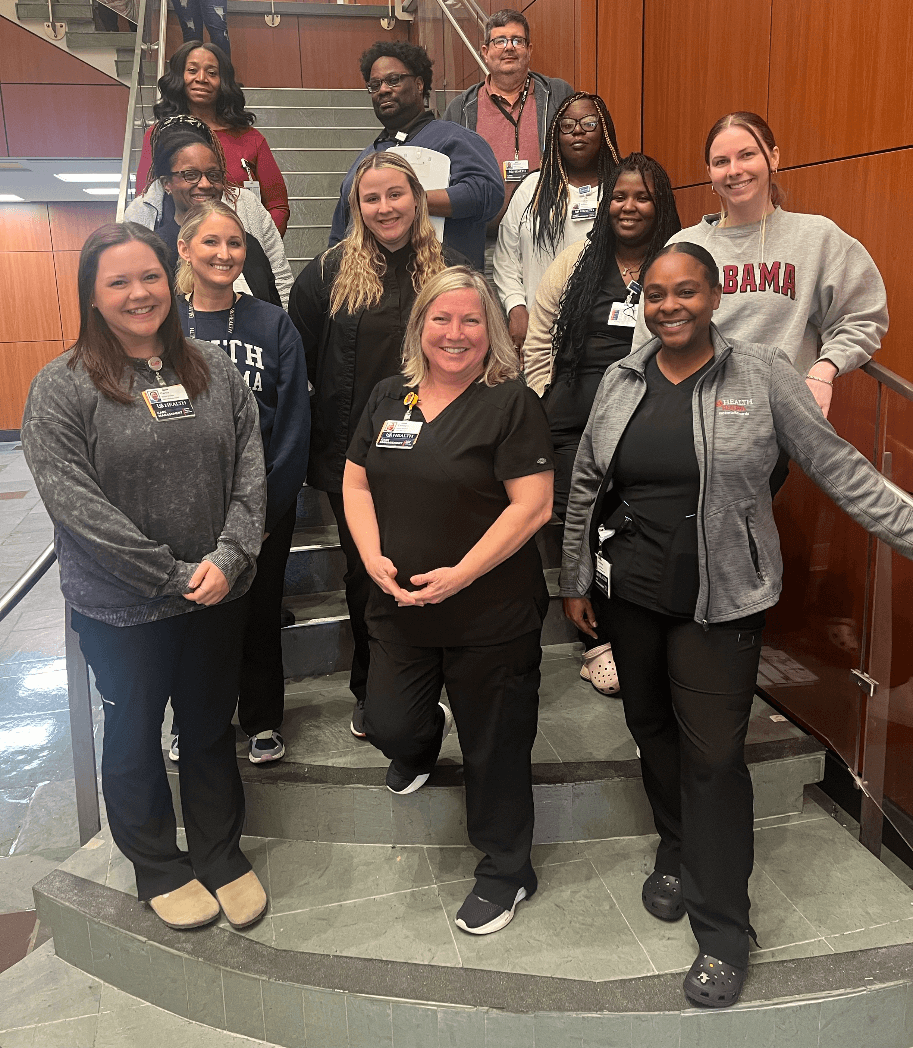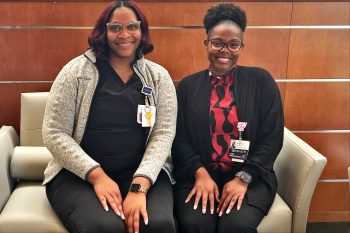
USA Health celebrates Social Work Month in March
“Our social workers are a vital part of the interdisciplinary team ... and can connect patients and their families with community resources, provide crisis and mental health intervention, and provide psychosocial support.”
Often, people seek careers in social work because they have a strong desire to help others. They are mission-driven and want to empower and enhance the well-being of those around them as they strive to meet the needs of those they serve.

At USA Health, there are 39 social workers employed throughout the academic health system, typically assisting patients in hospital settings.
“Social workers’ role in the hospital is to be an advocate for our patients and their families and to help assist in identifying any barriers that could affect the patient receiving the proper care needed,” said Ashley Castillow, a social worker supervisor at USA Health. “Our social workers are a vital part of the interdisciplinary team in our hospitals and can connect patients and their families with community resources, provide crisis and mental health intervention, and provide psychosocial support.”
Despite the stress that can come with the job, social work is one of the fastest growing professions in the United States, according to the Bureau of Labor Statistics. It predicts almost 800,000 Americans will work as social workers in the United States by 2032, an increase of 7% from 2022.

Castillow said she chose social work — and specifically medical social work — to empower and advocate for people in crisis and vulnerable situations. “Oftentimes our patients don't know what they need or what to ask for,” she said. “As a social worker, I am able to stand beside the patient to ensure they are heard, seen, and cared for as I would want anyone in my family cared for.”
Simply put, Castillow said, “my goal is to work with individuals to ensure they have the tools and resources to care for themselves or their loved ones when they leave the hospital.”

In March, an annual Social Work Month campaign offers a time to inform the public, policymakers, legislators, and colleagues about how social workers assist millions of people, helping them to overcome life’s challenges and live up to their full potential.
At USA Health, Castillow noted, the social workers and Care Management Department are often the starting point to help families in accessing vital services and support for which their loved one may qualify.
“We can assist in setting up durable medical equipment, in-home services, and post-acute placement; we provide resources related to mental health services and support in the area and help identify community resources to help meet the needs of the patient and their family.”

There are a few things Castillow would like everyone to know about her profession. First, social workers are licensed professionals. The term “social work” is a protected title, and someone cannot claim to be a social worker unless they hold a license. Social workers hold at least a bachelor’s degree (LBSW) or a master’s degree (LMSW), and they may hold additional credentialing and licensing.
Next, “social workers do not fix all problems for people,” she said, “but we help set goals, provide support and resources to reach goals, and create an environment of empowerment for individuals and families.”




